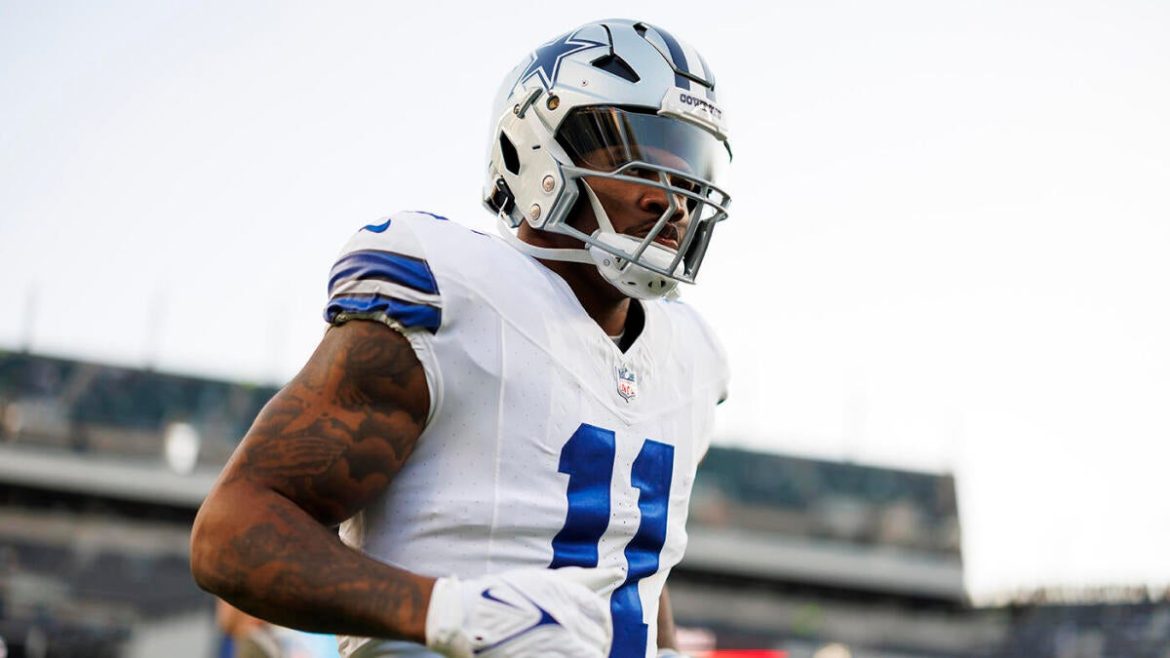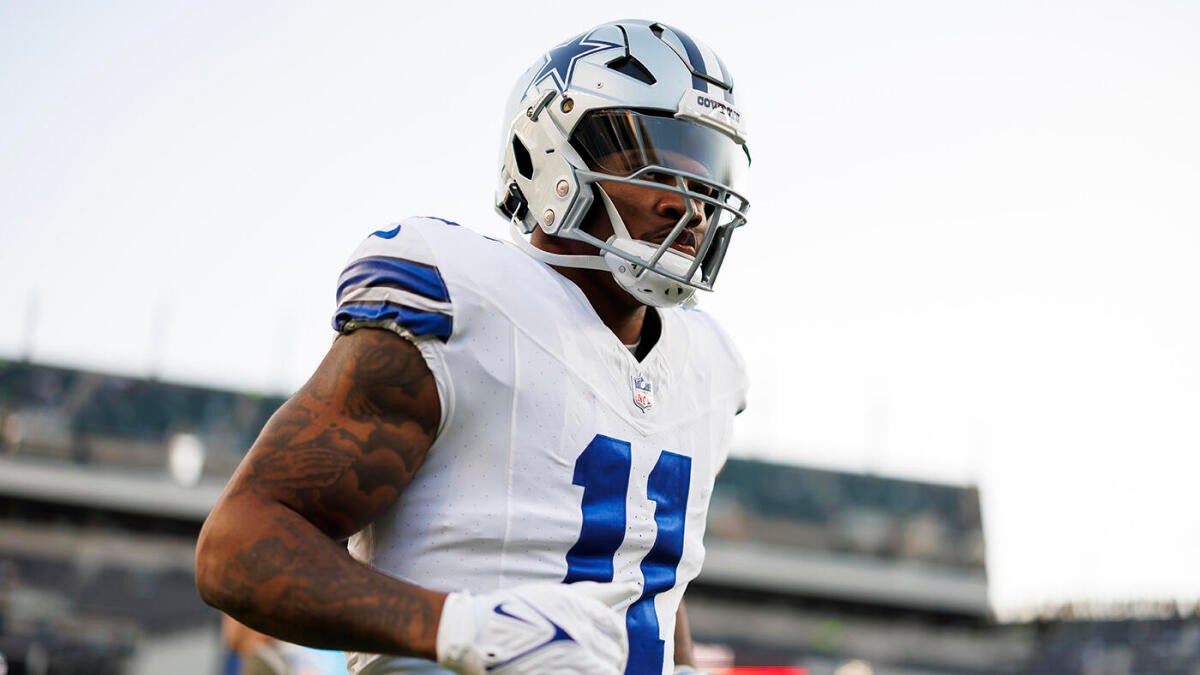The Micah Parsons Contract Standoff: A Critical Juncture for the Dallas Cowboys
Introduction: A High-Stakes Negotiation
The Dallas Cowboys, a franchise synonymous with drama and high expectations, are once again at the center of a contentious contract negotiation. This time, the spotlight is on Micah Parsons, the team’s dynamic and indispensable edge rusher. The standoff between Parsons and the Cowboys has escalated to a point where trade rumors are swirling, and the future of the team’s defense hangs in the balance. This is not merely a financial dispute; it is a defining moment that could shape the Cowboys’ trajectory for years to come.
The Rise of Micah Parsons: A Defensive Powerhouse
Micah Parsons’ journey from a promising rookie to a defensive cornerstone has been nothing short of meteoric. Drafted in the first round of the 2021 NFL Draft, Parsons quickly dispelled any doubts about his readiness for the professional stage. His combination of speed, strength, and football IQ made him a versatile force, capable of wreaking havoc from multiple positions. Whether lined up as an edge rusher, a linebacker, or even a hybrid defender, Parsons’ ability to disrupt opposing offenses was unparalleled.
His immediate impact was evident in his rookie season, where he earned Defensive Rookie of the Year honors. Parsons’ relentless pursuit of quarterbacks, coupled with his knack for making game-changing plays, transformed the Cowboys’ defense into a formidable unit. He is not just a star; he is the linchpin of a defense that has become a cornerstone of the Cowboys’ success. This level of performance has naturally led to expectations of a contract that reflects his value, both on and off the field.
The Negotiation Impasse: A Clash of Expectations
The contract negotiations between Micah Parsons and the Dallas Cowboys have reached a critical juncture, with both sides seemingly at an impasse. The exact details of the negotiations remain private, but the underlying issues are clear. Several factors contribute to the stalemate:
Market Realities and Positional Value
The market for elite pass rushers has seen a significant uptick in recent years. Players like Nick Bosa and T.J. Watt have secured lucrative contracts that have reset the market benchmarks. Parsons, who arguably matches or surpasses the impact of these players, is seeking a deal that reflects his status as one of the league’s premier defenders. The Cowboys, however, may be hesitant to meet these demands, citing their own financial constraints and strategic priorities.
Versatility as a Double-Edged Sword
Parsons’ versatility is one of his greatest strengths, allowing him to play multiple positions and adapt to various defensive schemes. However, this versatility may also complicate contract negotiations. The Cowboys might argue that Parsons’ ability to play multiple roles dilutes his value as a pure edge rusher, while Parsons’ camp could counter that his adaptability increases his overall worth. This discrepancy in valuation is a significant hurdle in reaching an agreement.
Salary Cap Constraints and Team Strategy
The Cowboys have a history of navigating tight salary cap situations. With several high-priced players already on the roster, extending Parsons would further strain their financial flexibility. The team must balance the need to retain their star defender with the necessity of addressing other positional needs. Additionally, the Cowboys may prioritize investing in their offense, which could lead to a philosophical difference in how they allocate resources.
The Trade Threat: A Nuclear Option
The reports that Micah Parsons is considering a trade request underscore the gravity of the situation. Such a move would be a drastic step, with far-reaching consequences for both Parsons and the Cowboys.
Implications for Micah Parsons
For Parsons, requesting a trade would mean leaving a team where he has been a star and a fan favorite. It would also entail adapting to a new environment, a new defensive scheme, and new expectations. However, it could also be a strategic maneuver to force the Cowboys to meet his contractual demands. Parsons’ camp may believe that the threat of a trade will compel the Cowboys to reconsider their offer, ensuring that he receives a deal commensurate with his value.
Consequences for the Dallas Cowboys
For the Cowboys, trading Parsons would be a significant blow. Losing their best defensive player would not only weaken their defense but also send a negative message to the locker room and potential free agents. It would signal that the team is unwilling or unable to retain its homegrown talent, potentially undermining morale and future negotiations. The impact on the field would be immediate, drastically reducing the Cowboys’ chances of competing for a Super Bowl.
Team Dynamics: The Ripple Effect
The contract standoff extends beyond financial and on-field implications; it also has the potential to create a rift within the team. The uncertainty surrounding Parsons’ future could affect morale, particularly among defensive players who rely on his leadership and playmaking ability. The way the Cowboys handle this situation will be closely watched by other players, especially those approaching contract negotiations of their own. If the Cowboys are perceived as unwilling to fairly compensate their star players, it could create resentment and make it more difficult to retain talent in the future.
Possible Outcomes: Navigating the Crisis
Several scenarios could unfold in the coming weeks and months, each with its own set of implications:
The Extension: A Mutually Beneficial Solution
The most desirable outcome for both sides would be a long-term contract extension that fairly compensates Parsons while allowing the Cowboys to manage their salary cap effectively. This would require compromise and creative financial structuring, such as incorporating signing bonuses and manageable annual salaries. An extension would not only retain Parsons but also send a positive message to the rest of the team and the league about the Cowboys’ commitment to excellence.
The Franchise Tag: A Temporary Fix
The Cowboys could use the franchise tag to keep Parsons in Dallas for another year, buying them more time to negotiate a long-term deal. However, this is a risky strategy, as it could further alienate Parsons and increase the likelihood of a trade request down the line. The franchise tag is often seen as a stopgap measure, and its use could signal a lack of long-term commitment from the Cowboys.
The Trade: A Last Resort
If the two sides remain far apart, the Cowboys might be forced to explore a trade. This would be a last resort, as they would likely receive less value in a trade than Parsons is actually worth. However, it might be the only way to avoid losing him for nothing in free agency. A trade would also allow the Cowboys to recoup some assets and potentially address other needs, but it would come at the cost of losing a defensive anchor.
Playing Out the Contract: A High-Risk Strategy
Parsons could choose to play out the final year of his rookie contract and then become an unrestricted free agent. This would give him the most leverage to negotiate a lucrative deal with any team, but it would also mean taking the risk of injury without the security of a long-term contract. For the Cowboys, this scenario would mean losing Parsons without receiving any compensation, a outcome they would undoubtedly seek to avoid.
Conclusion: A Defining Moment for the Cowboys
The Micah Parsons contract standoff is more than just a negotiation; it is a test of the Dallas Cowboys’ commitment to building a championship-caliber team. How they handle this situation will send a clear message to the rest of the league about their priorities and their ability to retain their star players. The pressure is on Jerry Jones and the Cowboys’ front office to find a solution that keeps Parsons in Dallas and ensures that the team remains a contender for years to come.
The clock is ticking, and the wrong move could have devastating consequences for America’s Team. The decision they make will not only shape the future of the Cowboys but also define their legacy in the eyes of fans and the NFL at large. The time to act is now, and the stakes could not be higher.





